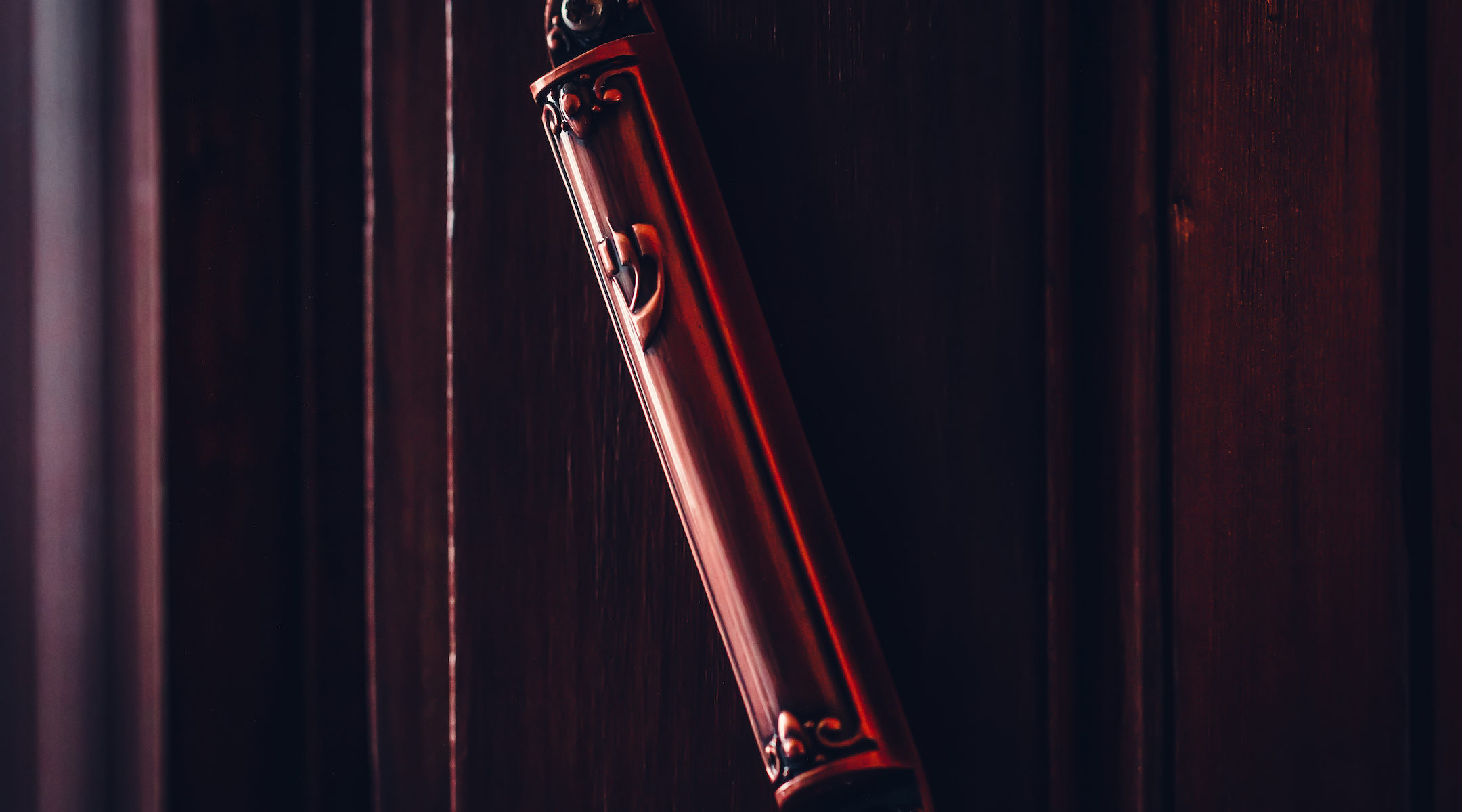MOUNT KISCO, N.Y. (JTA) — As I entered her house, she walked toward me in tears. She had just lost her mother and all she needed was a hug. Instead I put my hand on my heart and with a look of compassion nodded toward her 85-year-old father, “We are trying to keep guys like him safe.”
As we made plans for the funeral, we came to the painful conclusion that avoiding public gatherings included houses of mourning. It is one thing for us to give up entertaining ourselves; it is another to be unable to be there when the friends in our lives need us the most.
It has been challenging to help my community stay together through the divisiveness of our modern political era. Discussions of centrifuges and Iran have pulled our bonds toward atomization.
It has likewise been a challenge to help my community continue to gather through a time of hate, as synagogues go through target hardening against the possibility of another Pittsburgh or Poway. How can a community be welcoming and secure from physical threats at the same time?
But while these situations threatened my community by forcing us to ask if we are still willing to gather, and if it is even safe to gather, what we face now forces us to rethink the very essence of what constitutes community.
How can we be there for each other when we can’t be there for each other?
As a congregational rabbi, I am confronting this question every day. I’m finding answers that both break my heart and rebuild it anew.
Take the funeral I presided over. Jewish funerals are the opposite of social distancing: A throng of people envelops the mourners with embraces, hand holding, arms on backs and kisses on salty wet cheeks.
But not in the time of the coronavirus. As we chanted a psalm, the family wept beside the grave. The service had to be held outside for safety. Friends arrayed behind them stood like sentries multiple feet apart from each other and stretching far back into the cemetery.
Our job is to comfort the mourners. We were with them but could not really be there for them. It was, as Ecclesiastes described it, like watching “the tears of the oppressed with none to comfort them.”
After those with gloves shoveled dirt, I stood feet from the mourners and said, “All we want to do is put our arms around you so you can feel our love. Even though we can’t, please know we are surrounding you with it.” And with that they walked back to their cars between two lines of friends to return to an empty house.
It’s not just funerals. I’m getting calls from b’nei mitzvah families and wedding couples. What does it mean to go through some of the most meaningful moments of life without the people you love to share them with?
I’m constantly consulting with colleagues and physicians trying to figure out how Jewish law should be applied to an unforeseen context with a heavy dose of improvisation. We are all doing our best.
But something is happening in response to this latest challenge to our community. As our board members call to check in on congregants and our video minyans swell with participants, there is a desire to reach out to each other that is more powerful than when we took it all for granted.
We are realizing how much we need each other. And as Jews, as human beings, how much more we have in common pulling us together than the now seemingly petty things that pulled us apart.
In the mourners’ home that night, I was alone with the family. It was a quiet, trafficless shiva. When the time came for minyan, we opened the laptop, logged in and watched as a couple boxes popped up with videos of people in their homes — then a dozen more, then a dozen more. Suddenly there was a sea of faces. Each one looking at us, expressing condolence. The family wept.
Earlier at the graveside, I had said to them, “When this is over, we will throw our arms around you.” Love and comfort in our communities have been so readily available we haven’t thought twice about testing them on divisiveness or locking them out with bulletproof doors. We have hardly had the opportunity to really feel the desire for it — until now.
JTA has documented Jewish history in real-time for over a century. Keep our journalism strong by joining us in supporting independent, award-winning reporting.







